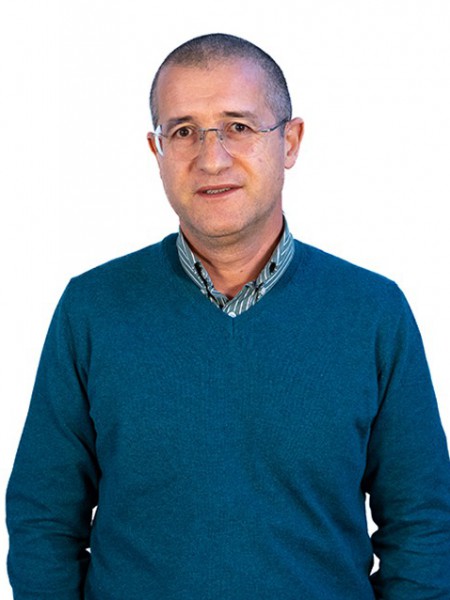resumo
Poly(2,5-furandicarboxylate)s incorporating aliphatic moieties represent a promising family of polyesters, typically entirely based on renewable resources and with tailored properties, notably degradability. This study aims to go beyond by developing poly(isosorbide 2,5-furandicarboxylate-co-dodecanedioate) copolyesters derived from isosorbide (Is), 2,5-furandicarboxylic acid (FDCA), and 1,12-dodecanedioic acid (DDA), and studying their degradation under environmental conditions, often overlooked, namely seawater conditions. These novel polyesters have been characterized in-depth using ATR-FTIR, H-1, and C-13 NMR and XRD spectroscopies and thermal analysis (TGA and DSC). They showed enhanced thermal stability (up to 330 degrees C), and the glass transition temperature increased with the content of FDCA from ca. 9 to 60 degrees C. Regarding their (bio)degradation, the enzymatic conditions lead to the highest weight loss compared to simulated seawater conditions, with values matching 27% vs. 3% weight loss after 63 days of incubation, respectively. Copolymerization of biobased FDCA, Is, and DDA represents an optimal approach for shaping the thermal/(bio)degradation behaviors of these novel polyesters.
palavras-chave
RENEWABLE RESOURCES; DICARBOXYLIC-ACIDS; POLYESTERS; COPOLYESTERS; THERMOSETS; BIODEGRADABILITY
categoria
Polymer Science
autores
Bouyahya, C; Patricio, R; Paco, A; Lima, MS; Fonseca, AC; Rocha-Santos, T; Majdoub, M; Silvestre, AJD; Sousa, AF
nossos autores
Projectos
CICECO - Aveiro Institute of Materials (UIDB/50011/2020)
CICECO - Aveiro Institute of Materials (UIDP/50011/2020)
European network of FURan based chemicals and materials FOR a Sustainable development (FUR4Sustain)
Associated Laboratory CICECO-Aveiro Institute of Materials (LA/P/0006/2020)
agradecimentos
This research was funded by FCT-Fundacao para a Ciencia e a Tecnologia/MEC (PIDDAC), UIDB/50011/2020 and UIDP/50011/2020. This research is also sponsored by FEDER funds through the program COMPETE-Programa Operacional Factores de Competitividade-and by national funds through the FCT under the project UID/EMS/00285/2020. This publication was also supported by COST Action FUR4Sustain-European network of FURan based chemicals and materials FOR a Sustainable development, CA18220. C.B. also acknowledges FUR4Sustain COST Action for a Short-Term Scientific Mission (STSM). This work was developed within the scope of CICECOAveiro Institute of Materials (UIDB/50011/2020 and UIDP/50011/2020) and LA/P/0006/2020, financed by national funds through the FCT-Fundacao para a Ciencia e a Tecnologia/MEC (PIDDAC). The FCT is also acknowledged for the research contract under Scientific Employment Stimulus to A.F.S. (CEECIND/02322/2020).



